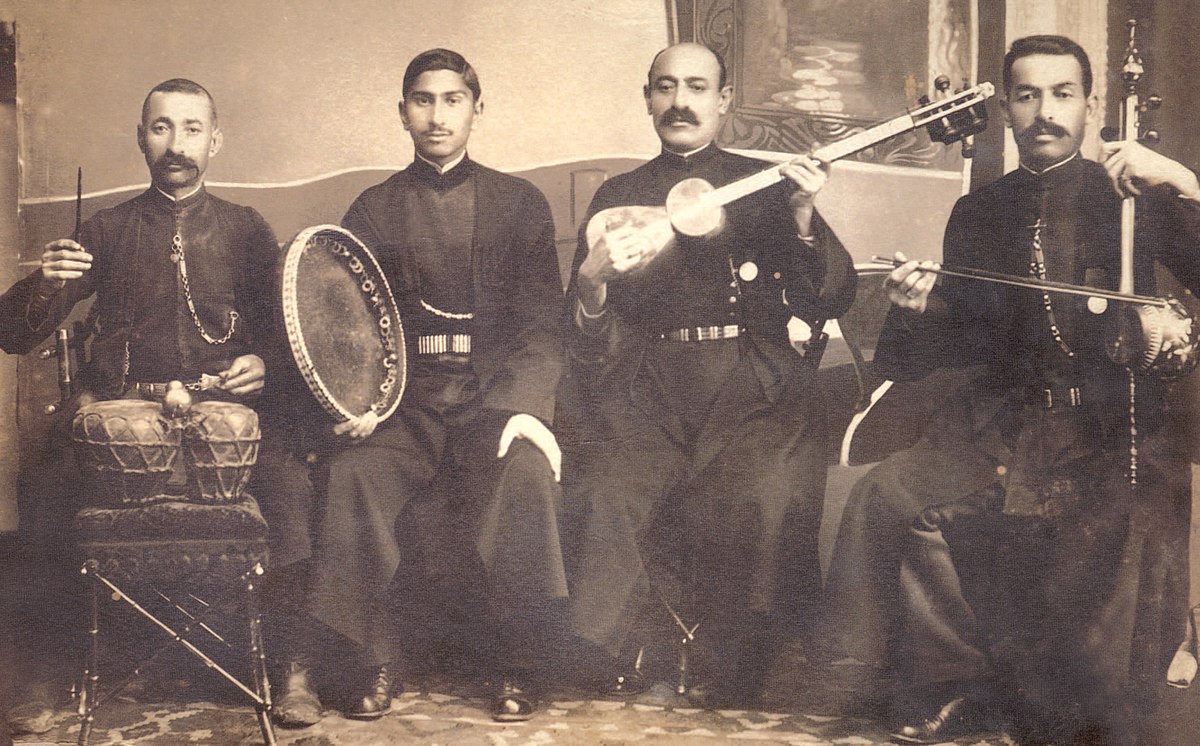Timeless Elegance Azerbaijan, a country situated at the crossroads of East and West Asia, boasts a rich cultural heritage spanning centuries. Today, we wish to talk to you about one of its many treasures — Mugham. A musical tradition that has captivated the hearts and souls of people worldwide. The origin of Mugham dates back over a thousand years. Influenced by various cultures, including Iranian, Arab, and Caucasian, it has given rise to a truly unique musical tradition that continues to thrive to this day. The term “Mugham” translated from Aramaic and Hebrew, and later Arabic “maqam”, means “place” and “location”. The word hides an immense historical past in itself. In Azerbaijan, Mugham is more than just a musical genre; it is a cultural and spiritual phenomenon that embodies the soul of the country. Highly improvised in nature, performers rely on their deep knowledge and mastery of “Mugham singing” to create spontaneous and profoundly emotional music. As a musical genre, Mugham has influenced many musicians and composers. Outstanding artists have conquered the world through the incorporation of Mugham into their works. For instance, Uzeyir Hajibeyov’s avant-garde achievement involved fusing Mugham with Western classical music. Gara Garayev synthesized Mugham and classical music in his famous “Seven Beauties.” Today, Mugham has transcended geographical boundaries, playing an active role in the compositions of Western composers. Jean-Christophe Maillot, choreographer and director of the Ballet de Monte- Carlo created a unique work. The ballet “Altro Canto” includes elements of Mugham, demonstrating the development and relevance of this ancient art form in a modern context. Speaking of international attention, it’s crucial to mention the legendary singer Alim Gasimov, received the UNESCO “Artist for Peace” award for his Mugham performances. His singing, literally out of this world, and his subtle interpretations have revealed to the world the beauty of this timeless tradition. Subsequently, Mugham has been inscribed on UNESCO’s Representative List of the Intangible Cultural Heritage of Humanity, further emphasizing its significance on the global stage. Azerbaijani Mugham is often described as mysterious, a term that perfectly reflects its nature. The beauty of Mugham lies in its ability to evoke deep emotions and tell stories with no words. It is a language of the heart that transcends linguistic barriers and speaks directly to the soul. The interpretation of Mugham is a visual and auditory feast. Complex melodies are complemented by expert improvisation using traditional instruments such as the Tar, Kamancheh, and Balaban. As a traditional genre, Mugham has no difficulty keeping pace with its time. Adapting to the 21st century, it continues to evolve through musicians working on innovative ways to preserve ancient traditions. By incorporating contemporary elements, and experimenting with new sounds, they ensure that Mugham remains relevant for future generations while preserving its fundamental essence.

